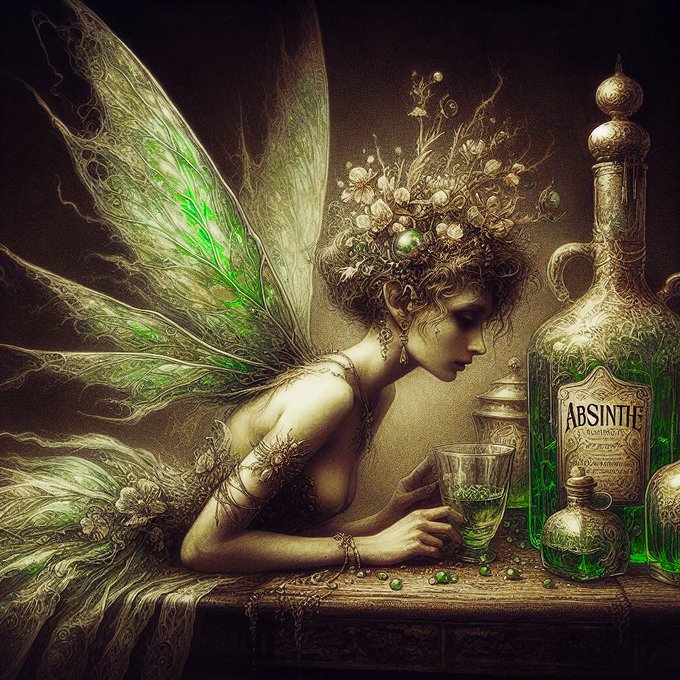
Absinthe is an overproof liquor, meaning it is a spirit whose ABV (alcohol by volume) is over 50%. It is made from medicinal and culinary herbs, plants, and flowers steeped in high-proof spirits. “The elixir was invented in Switzerland as a general cure-all by Pierre Ordinaire, a French physician, in 1792,” writes Paul Harrington and Laura Moorhead in their book Cocktail: The Drinks Bible for the 21st Century.
Its signature bitter anise flavor comes from a mix of herbs including fennel and most notably, wormwood, a bitter herb notorious for both its health benefits and supposed hallucinogenic properties. Wormwood, or Artemisia absinthium, contains a chemical called thujone, which when consumed in large quantities can act as a convulsant. In small quantities, like in a few servings of absinthe, thujone is totally harmless. Traditionally, absinthe is not bottled with added sugar, making it a high-proof spirit instead of a sweetened liqueur, which gives absinthe its sharp, harsh flavor.
